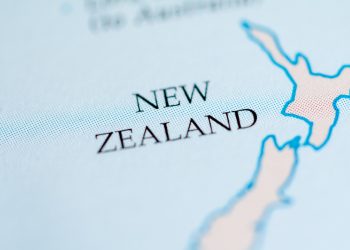Hurt shipping lines
A new maritime law passed by the Kenyan government last year that is now being operationalised will bar shipping lines from investing in other cargo handling logistics in the country. The Kenya Maritime Authority (KMA), the statutory body that regulates the industry, last week received final views from public on what shape the new regulation on commercial maritime services should take.
A provision in the Merchant Shipping Act 2009 (MSA), which was introduced during the third reading of the bill in parliament has drawn a lot of controversy and efforts to operationalise the MSA has been opposed by shipping lines and their agents since the it came in force in October last year due to the prohibitive clause.
According to section 15(a) of the Act, no owner of a ship or person providing the services of a shipping line shall either directly or indirectly, provide in the maritime industry services of crewing agencies, clearing and forwarding, port facility operators, shipping agents, terminal operators, container freight stations, quay side service providers, general ship contractors, haulage, ship breakers, ship chandlers, cargo consolidators, ship repairers, maritime training or such other services as the minister of transport may appoint.
Those who argued in the support of this provision said that an ocean carrier who operates other segments of the transport logistics chains have far superior advantage over other competitors.
They not only have the first hand access to information on potential customers but they also employ predatory activities that drastically reduces and shut out the competition altogether, A working group formed last year under the auspices of KMA to develop consensus on the new regulations said. However, Shipping lines were not represented in the working group.
Details have since emerged that the shipping lines tried to block the enactment of the new law with section 15 (a) and wrote to the Kenyan government to lobby against the law being assented to by the president.
In one of the letters, Maersk Group chief executive Nils Andersen said the clause, which was introduced during the third reading of the Bill would hurt foreign investors in the industry.
This clause will exclude our group and a number of other large international companies from being able to make bids or invest in Kenya within a broad definition of ship logistics and related services, the letter said adding that the provision would undermine a number of investments already made by the shipping lines.
Mearsk commands the biggest cargo volume through the port of Mombasa and has invested heavily on the cargo handling operations. KPA has already dedicated berths 13 and 14 to Maersk who in turn agreed to invest in the cargo handling equipment at the port.
Out of the 22 shipping lines calling at Mombasa port, 13 are for containerised cargo and Maersk commands between 30-40 per cent of the market share.
Based on statistics released by the KPA last year, Maersk commanded 32.1 per cent of the total container traffic handled at the port of Mombasa.
Other companies with a significant portion are Mediterranean Shipping Company (MSC) and Pacific International Lines (PLI) at 19.4 and 12.8 per cent respectively according to the last year figures.
Nils Andersen visited Mombasa port in 2008 with a business team to explore expansion of the companys operations at the Kilindini port. The Danish company has subsidiaries in more than 130 countries worldwide.
KPA has received a lot of support from Maersk and the company has invested heavily in cargo handling equipments that we use to offload vessels that call at the port inclusive those of rivals, port managing director who was suspended last week Mr James Mulewa said.
He said that Maersk will assist it in the handling of cargo at the port and would add more equipment to help KPA since it has allocated the company two dedicated berths. But according to the new law, Andersen letter to the Kenyan authorities said that it would scuttle the Maersk plan to invest US $ 90 it had planned to invest at the port.
KMA gave public two weeks to give their views to a task force that was set up to develop regulations on commercial maritime services that were suspended last year. The views sort from the public will acquaint the task force on the issues to be addressed.
The key output is to establish the current status of operations that directly impacts on the flow of the cargo with a view of identifying key performance indicators and establishing structures for sustenance of agreed service levels, an advert placed in local media said in part.
Importers using Mombasa pay logistic costs for as much as 42 per cent of the cost of insurance and freight and almost 58 per cent of the free on board value of goods, according to a report by the working group.
Source:Michael Kihara, Arranged for Hellenic Shipping News Worldwide



























































